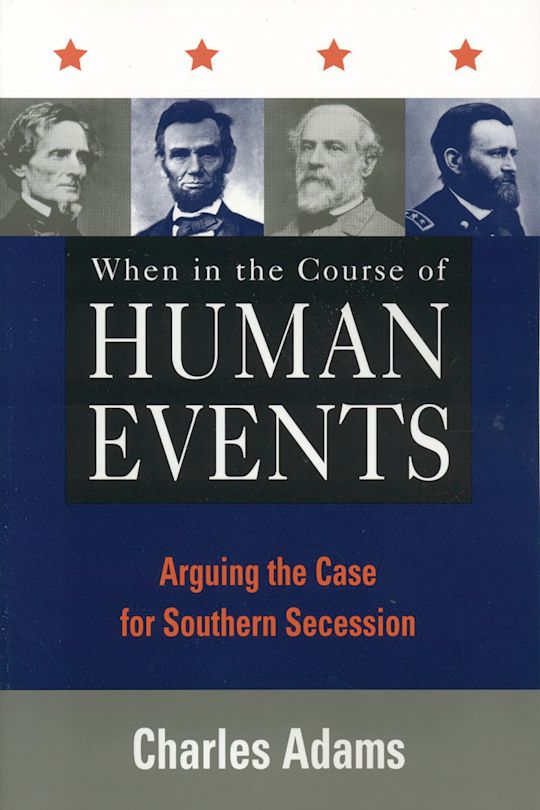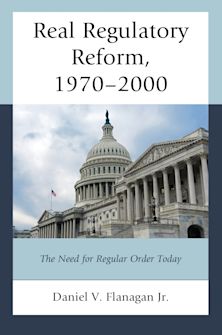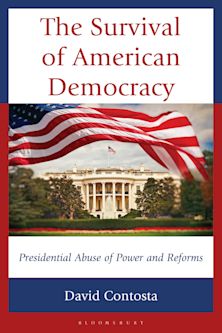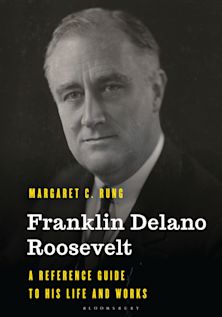- Home
- ACADEMIC
- History
- United States History
- When in the Course of Human Events
When in the Course of Human Events
Arguing the Case for Southern Secession
- Textbook
When in the Course of Human Events
Arguing the Case for Southern Secession
- Textbook
Buy from Bloomsbury eTextBooks
You are now leaving the Bloomsbury Publishing website. Your eBook purchase will be with our partner https://www.vitalsource.com.
Your credit card statement will show this purchase originating from VitalSource Technologies. They will also provide any technical assistance you might require.
You must sign in to add this item to your wishlist. Please sign in or create an account
Description
Bold and thought provoking.
Table of Contents
Chapter 2 1 The Dangerous Road to Secession
Chapter 3 2 A Useless Fort?
Chapter 4 3 Lincoln Crosses the Rubicon
Chapter 5 4 Whose War Was It, Anyway?
Chapter 6 5 The British Press Views the War
Chapter 7 6 British Scholars Speak
Chapter 8 7 How British Cartoonists Saw the War
Chapter 9 8 A Just War?
Chapter 10 9 Negrophobia
Chapter 11 10 The Ku Klux Klan
Chapter 12 11The Peacemakers
Chapter 13 12 The Trial of the Century That Never Was
Chapter 14 13 Lincoln's Logic
Chapter 15 14 The High Ground
Chapter 16 15 Reflections: Healing the Breach
Product details
| Published | 23 Dec 2004 |
|---|---|
| Format | Ebook (Epub & Mobi) |
| Edition | 1st |
| Extent | 280 |
| ISBN | 9781461646976 |
| Imprint | Rowman & Littlefield Publishers |
| Publisher | Bloomsbury Publishing |
About the contributors
Reviews
-
A very readable and insightful book.
Marshall L. DeRosa, Political Scientist at Florida Atlantic University and author of several books
-
This is the best written, most accurate account of the causes and meaning of the American Civil War. . . . A fantastic book!
John V. Denson, Auburn University
-
Highly original. . . . Mr. Adams' work, as well as contributing to the subject, makes a lovely example of the way history should be written.
Clyde N. Wilson, University of South Carolina
-
The Civil War violently destroyed the decentralized federal system of the Founders and opened a way for the vast centralized empire of today. To legitimate this revolutionary change, Americans have taught that secession was unconstitutional; that the South seceded to protect slavery; and that the North invaded to emancipate slaves. Charles Adams, a northern historian, argues persuasively that these propositions are false. Adams claims that the war was about what most wars are fought over: control of territory, resources, and revenue. To many this book will be disturbing; to others it will be a breath of fresh air. The first step in healing the fractural historical memory imposed on all Americans by the Civil War is to face the hard truths that Adams brings into focus. Having read this book, I can no longer, with ease, recite the 'Gettysburg Address' or sing the 'Battle Hymn of the Republic.'
Donald Livingston, Emory University
-
Adams is the world's leading scholar on the history of taxation. When in the Course of Human Events is a must read for history teachers and history buffs searching for honesty.
The Charlotte Observer
-
This is one of the most important books ever published on American history.
Forum News Magazine



































